!Let Us HELP YOU!
We have a lot of curated content on this blog.
Take this simple 20 second Quiz to Help You
Find The Exact Content You Are Looking For!
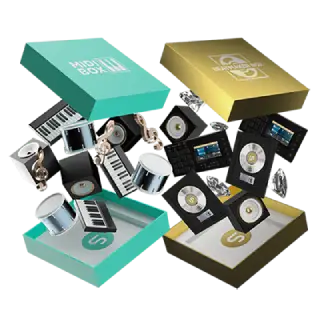
Recommended if you: value finished-sounding content, like project files to learn from, and have a budget to invest in packs that last. Click here to learn more about Unison Audio.
Hey guys I made a deep-dive video covering the best places to find rap drum kits this year. This article expands on that content and lays out everything I talked about in the video, plus practical tips, comparisons, and my personal recommendations. This article was created from the video Top 10 Rap Drum Kit Websites 2025 by The Corporatethief Beats.If you make beats, whether you’re into trap, melodic rap, boom bap, drill, or anything in between, this guide to Rap Drum Kits 2025 will save you time, money and endless browsing.
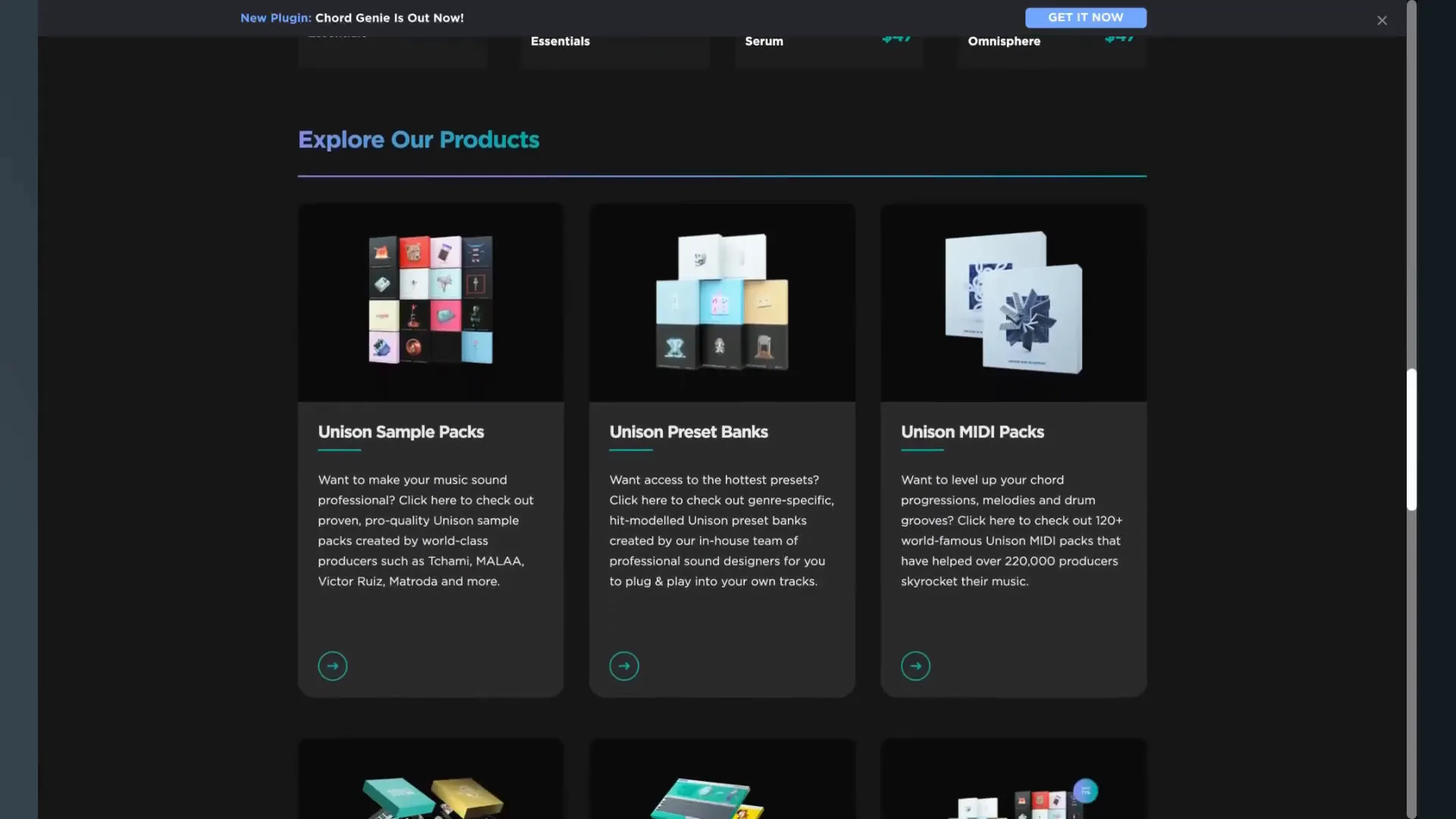
Outline
- Why drum kits matter in modern rap production
- How I chose these sites
- Top 10 sites for Rap Drum Kits 2025 — deep breakdowns
- How to pick the right kit for your workflow
- Layering, processing and mixing tips for drum kits
- My personal kit and how I use it
- Bonus marketplaces and hidden gems
- FAQ
- Final thoughts and next steps
Introduction: Why a Good Drum Kit Changes Everything
In beat making, drums are the backbone. The right kick, snare, hat and 808 can turn a good melody into a hit. That’s why this guide focuses on the best places to source high-quality drum sounds for 2025. The goal here is simple: point you to platforms that consistently deliver usable sounds, save you time, and help you create mixes that translate across club systems, earbuds, and streaming platforms.
Throughout this guide I’ll refer to and compare platforms that offer everything from free community uploads to premium packs made by producers who have worked with top artists. If you’re searching for Rap Drum Kits 2025—whether free or paid—this article will tell you where to go and why.
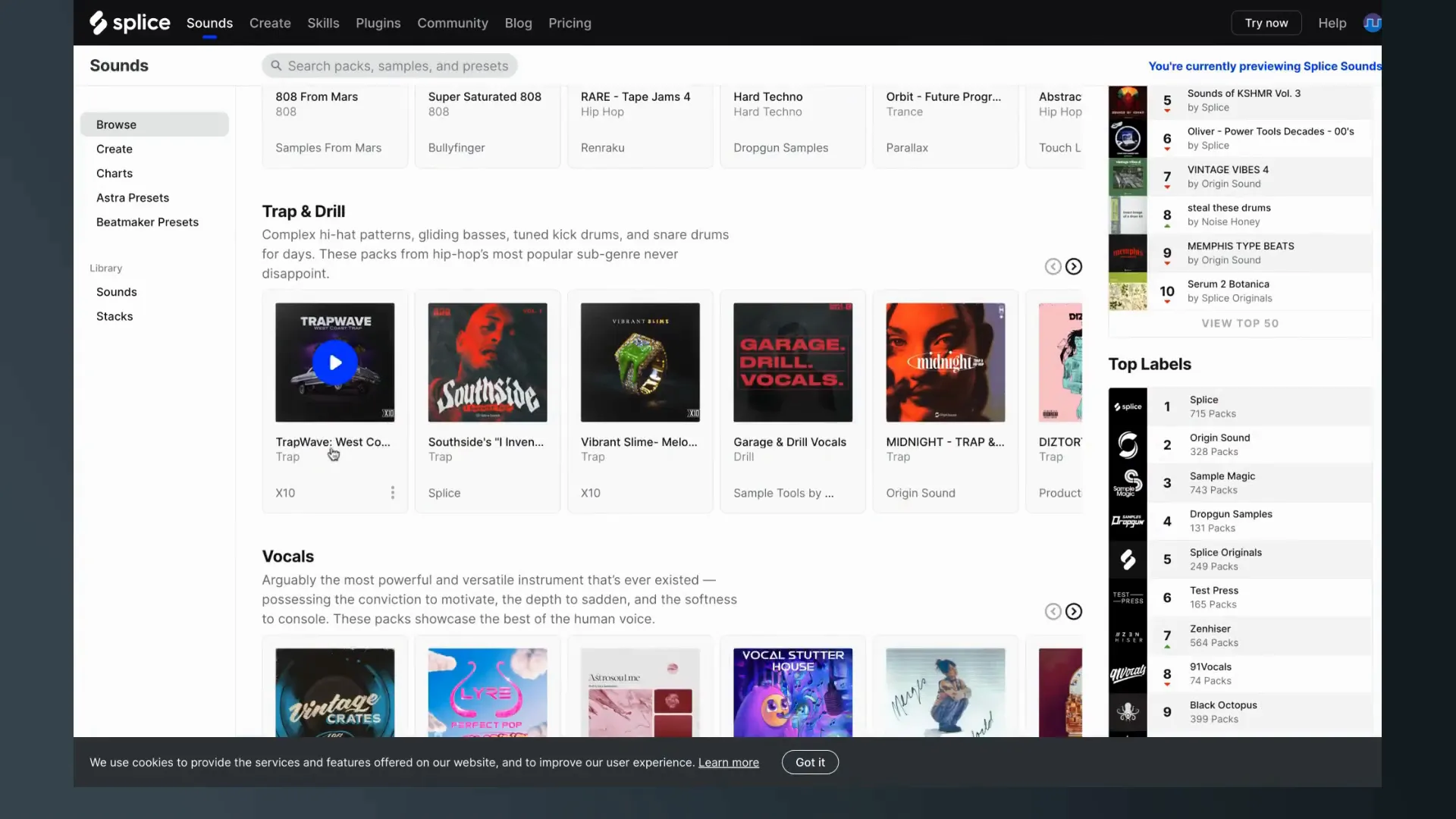
Below is the full list I cover, laid out in order of how I recommend them for different producers. Each entry includes what the platform does best, how pricing works, and the best use cases.
1) Unison Audio — My star pick for
Rap Drum Kits 2025
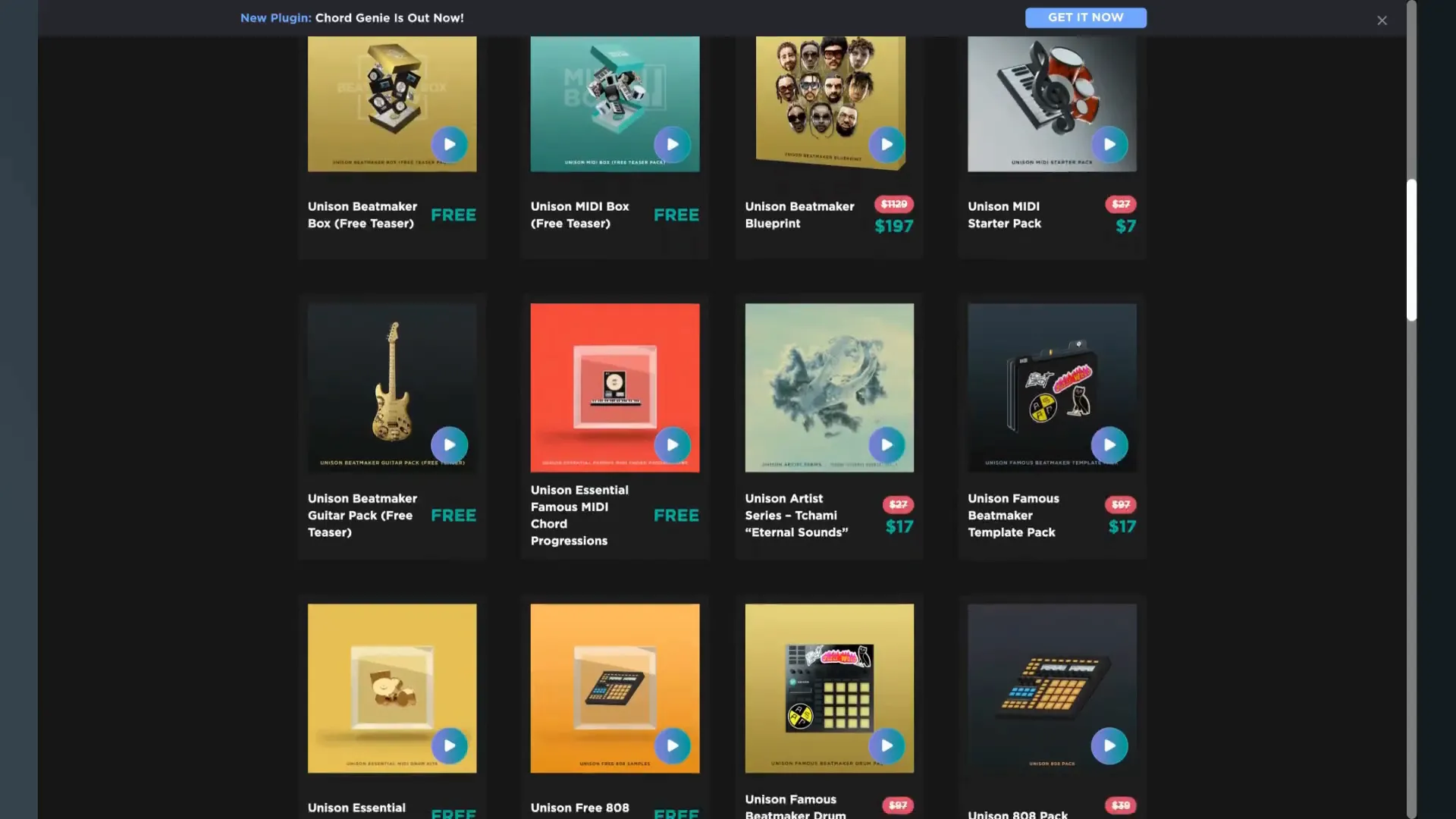
Unison Audio tops this list because they do more than just sell one-shots. Their approach is polished, intentional and workflow driven. If you want curated, modern drum sounds and production tools that help you finish tracks faster, Unison is a top choice.
Why Unison stands out:
- Full song creation toolkits: their packs are genre-specific and built to produce entire tracks quickly.
- Drum Monkey plugin: auto-generates drum patterns by genre and energy level — great for sparking ideas fast.
- Complete bundles: kits often include one-shots, loops, MIDI, project files and video tutorials, which speeds learning.
- Made by pros: many packs are crafted by or with producers who have industry placements.
- No subscription: you buy a pack and it’s yours forever — lifetime updates included in many cases.
Pricing and value: Packs usually range from about $37 to $147, which is premium compared to other marketplaces. But you’re paying for curated quality, project files and ongoing updates. If you want professional Rap Drum Kits that cleanly slot into a modern mix without endless tweaking, Unison is worth it.
Recommended if you: value finished-sounding content, like project files to learn from, and have a budget to invest in packs that last. Click here to learn more about Unison Audio.
2) Splice — The sample streaming Giant
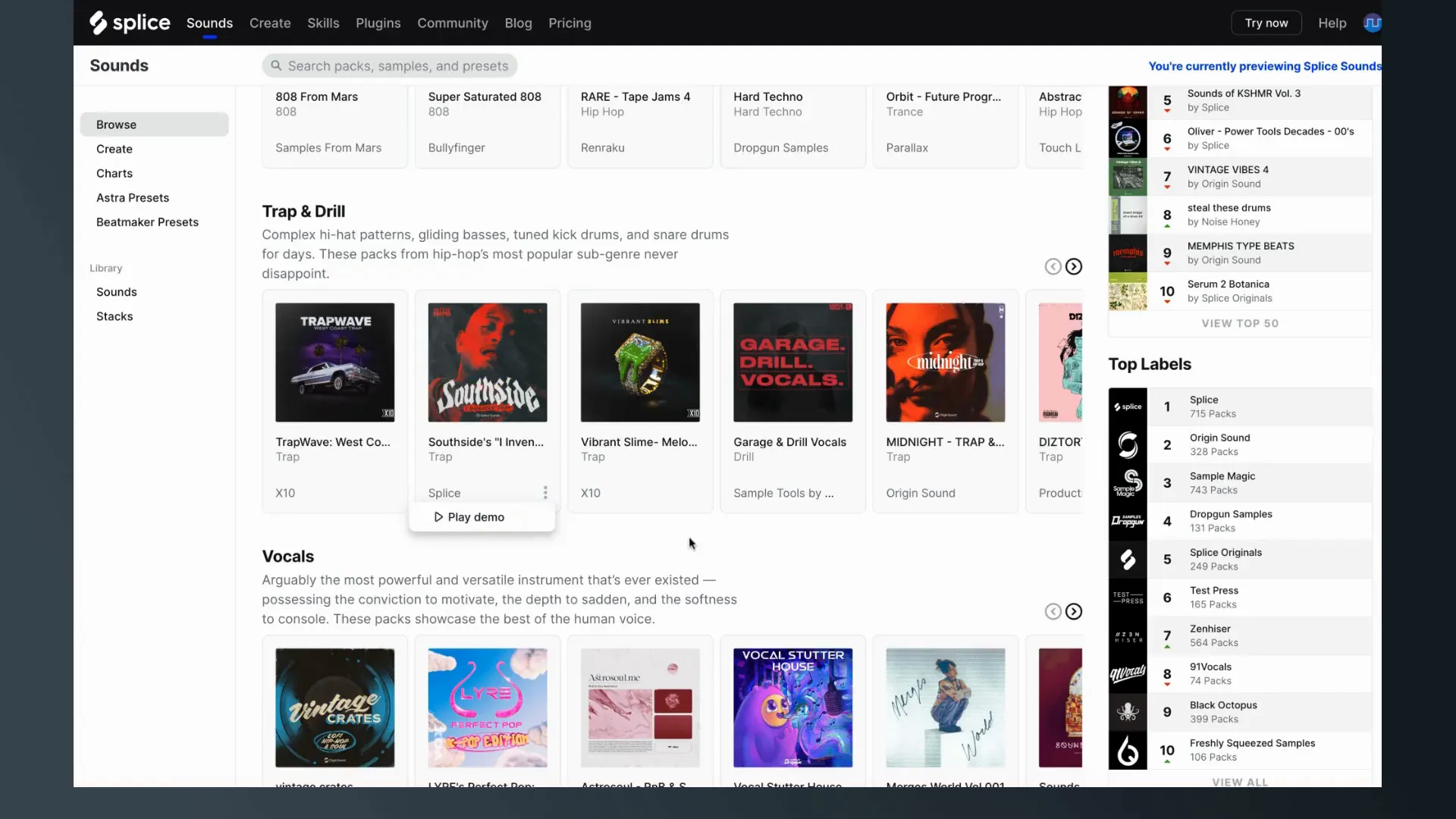
Splice is the most widely used sample platform in production. Think of it like Spotify for samples — you subscribe, get credits, and download individual sounds or packs.
Why Splice is essential:
- Massive library: millions of sounds across every genre, including an enormous selection of kits for Rap Drum Kits for 2025.
- Individual downloads: only grab the exact snare, hat or 808 you need for one credit each.
- Splice Bridge: preview samples in context inside your DAW so you don’t waste time guessing what will fit.
- Rent-to-own plugins: afford premium VSTs via monthly payments.
Pricing: Common plans include $12.99/month for 100 credits, $19.99/month for 200 credits, and Creator Plus for 500 credits at $39.99/month. Yearly discounts are available and there’s often a trial.
WEBSITE RESOURCES FOR MUSICIANS
Best for: producers who make a lot of beats, want endless options, and like assembling custom drum kits by picking single sounds. If your workflow relies on exploring many textures and replacing one-shots constantly, Splice is an essential hub music producers.
3) Looperman — Free hidden gem for raw and unique.
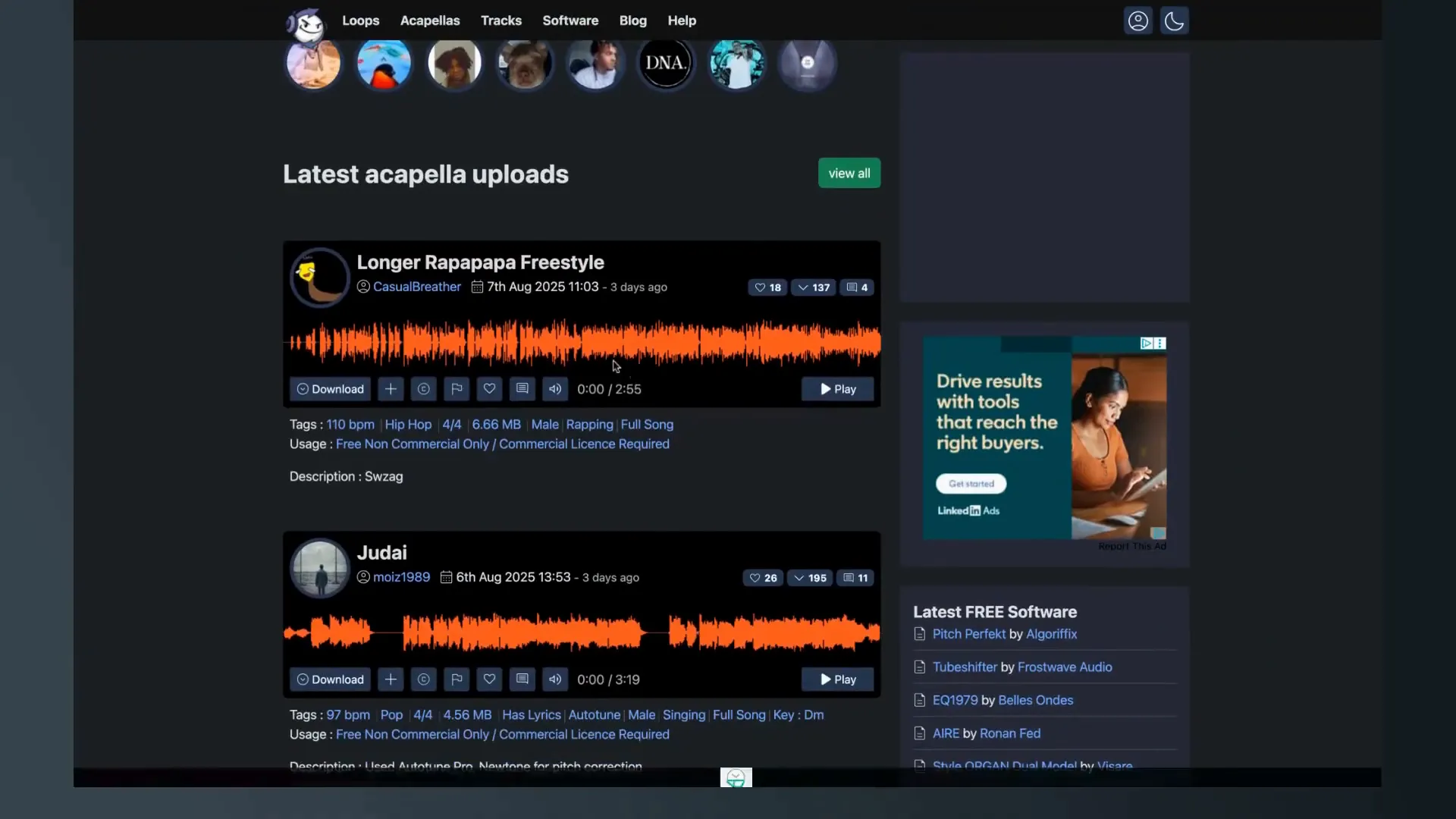
Looperman is a completely free community-driven site. If you don’t want to pay or you’re after off-the-grid sounds, Looperman can be a goldmine. The quality varies, but there are unique loops and textures you won’t find elsewhere.
Pros of Looperman:
- 100% free — download what you want with zero cost.
- Community uploaded content: organic, experimental and sometimes gritty sounds that give tracks character.
- Filter by BPM, key and instrument: better search controls than you might expect for a free library.
Cons: The site requires patience — dig through uploads to find gems. But designers and producers who love crate-digging will find Looperman an excellent source for raw elements to flip into personalized Hip Hop Drum Kits.
Best for: beginners, experimental producers, and anyone building a unique sound without spending money.
4) Cymatics — Trend-driven packs and huge freebies for Rap Drum Kits 2025
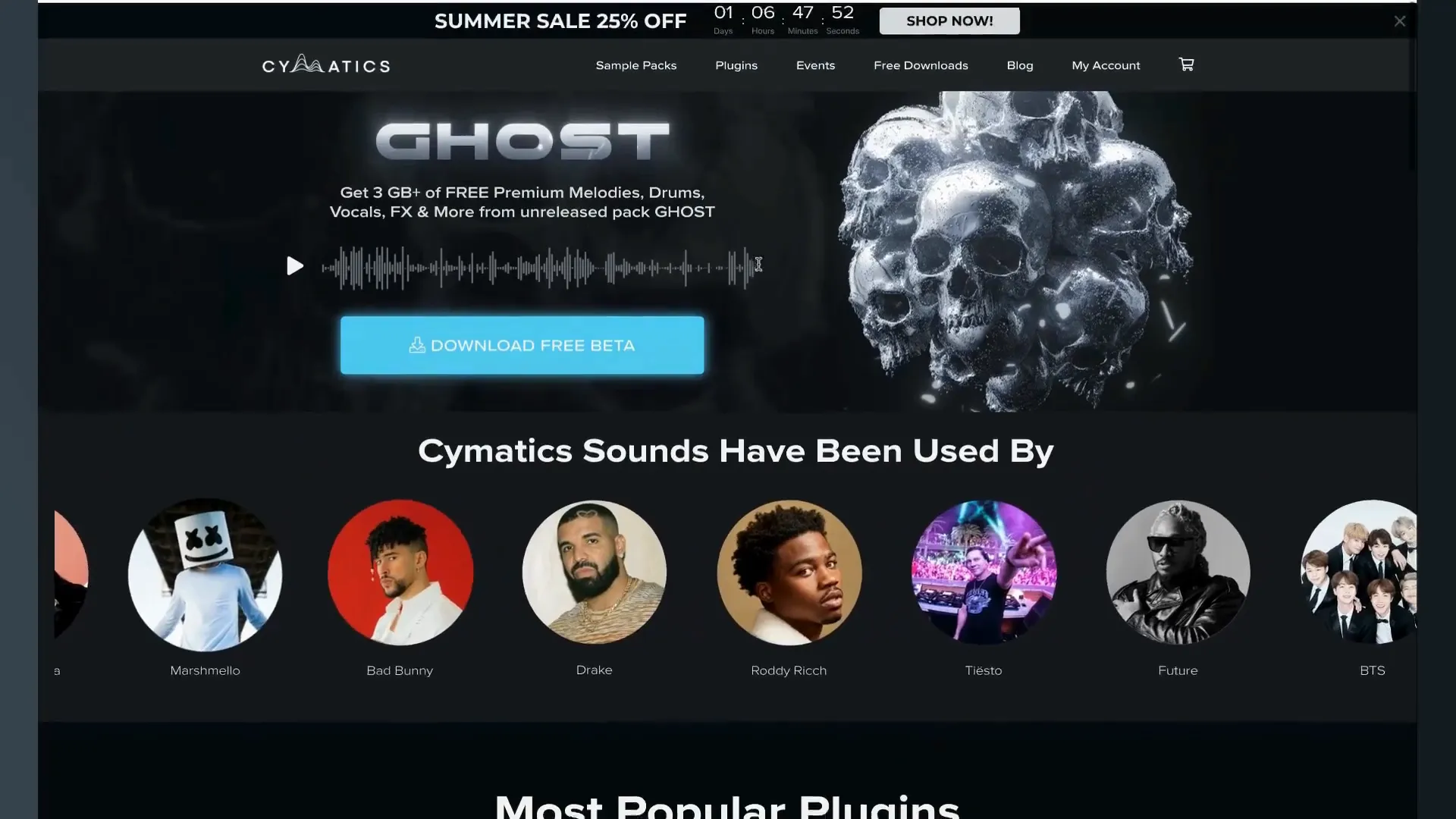
Cymatics is a huge brand known for trendy, highly-polished sample packs and aggressive free drops. Their products are super modern and designed to match current production trends — trap, drill, rage, melodic rap, and more.
What Cymatics does well:
- Polished sounds that are ready to drop into a mix.
- Frequent free packs and limited deals — sometimes huge bundles for very low cost.
- Comprehensive kits that include loops, one-shots, MIDI and sometimes vocal chops.
Pricing: Many high-quality packs are priced between $20 and $50, but they frequently run specials and giveaways. Cymatics is one of the best places to score contemporary-sounding drum sounds without searching through dozens of smaller sellers.
Best for: producers who want modern ready-to-use sounds and freebies with a trend-aware approach.
5) Modern Producers — Industry-backed kits and construction packs
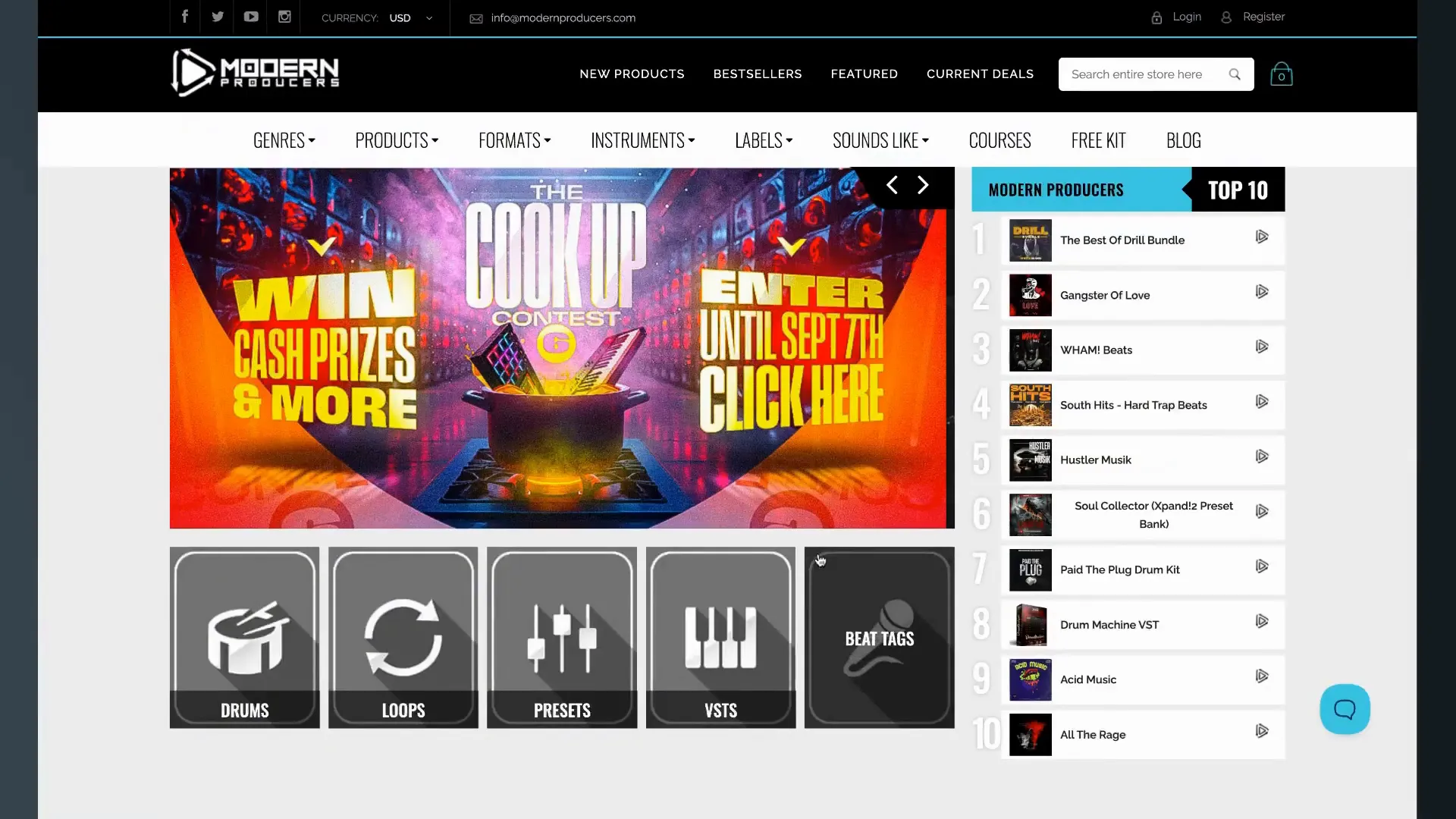
Modern Producers specializes in packs made with or by charting producers. Their kits are tailored to real-world placements — meaning the sounds are designed to translate in professional contexts.
Key features:
- Construction kits and full stems to dissect pro arrangements.
- Reasonable pricing — many packs between $10 and $30.
- Frequent bundle deals where you can stack lots of content for a low price.
If you want to reverse engineer how hit producers build arrangements, Modern Producers provides construction kits and MIDI that make learning easier. For curated Hip Hop , Pop and Sample Drum Sounds that closely mimic industry workflows, this site is a great middle ground between free libraries and high-end boutique packs.
6) ProducerLoops — Structured, ready-to-arrange packs
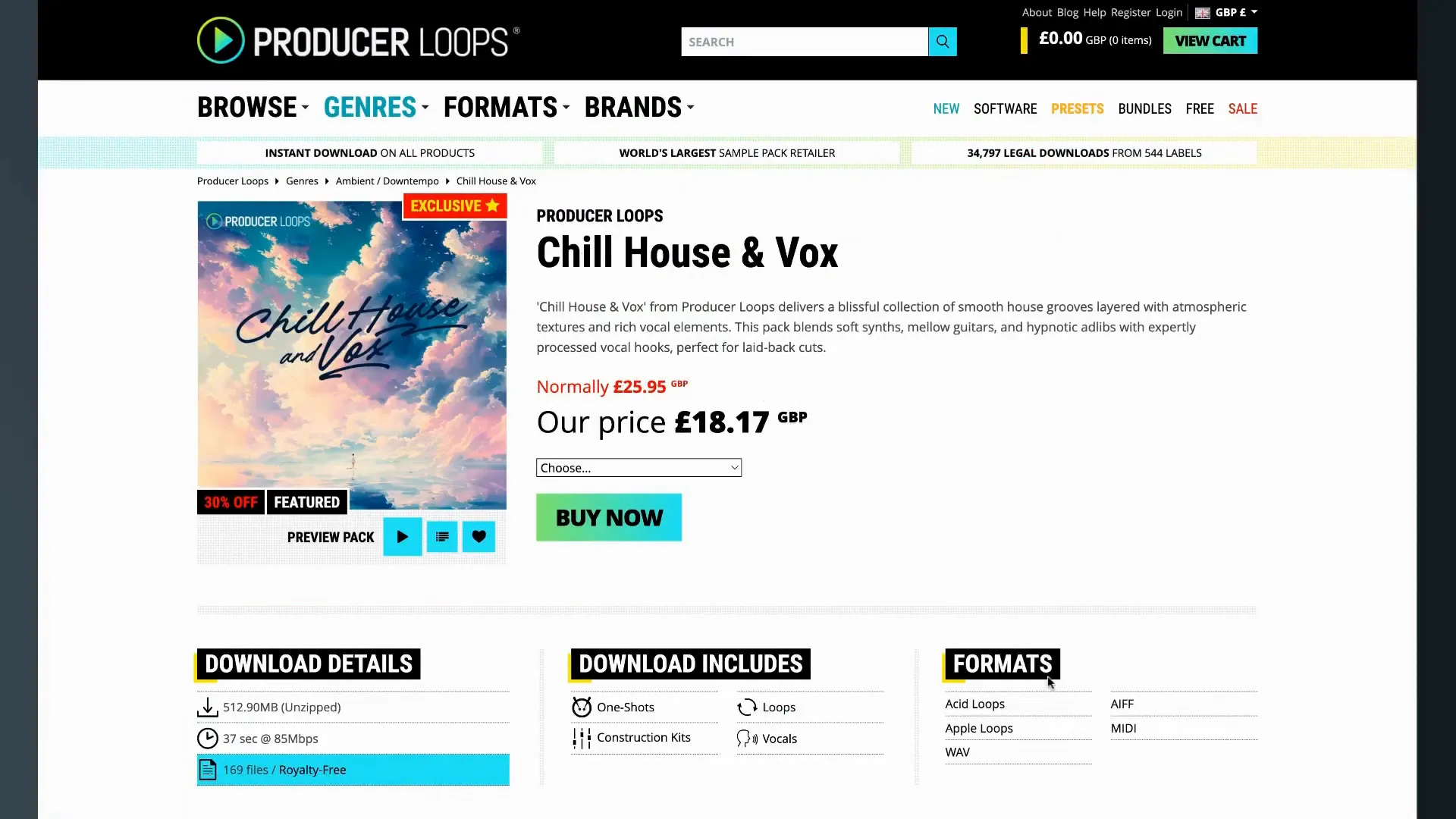
ProducerLoops has been around for a while, and their core strength is structure. Many packs come as full construction kits with stems, MIDI, multitrack folders and explicit arrangement guidance.
Why ProducerLoops is useful:
- Organized multitrack kits great for producing full songs or for pitching to artists.
- Wide genre coverage — pop, reggaeton, Afrobeat, cinematic, in addition to hip hop and R&B.
- Pricing ranges from affordable to premium depending on how deep the kit goes.
This is a top pick if you need a ready-to-arrange kit for recording sessions or for building a full composition with stems that are easy to chop and rearrange.
7) Lander Samples — Clean, organic sounds that fit soulful drum samples
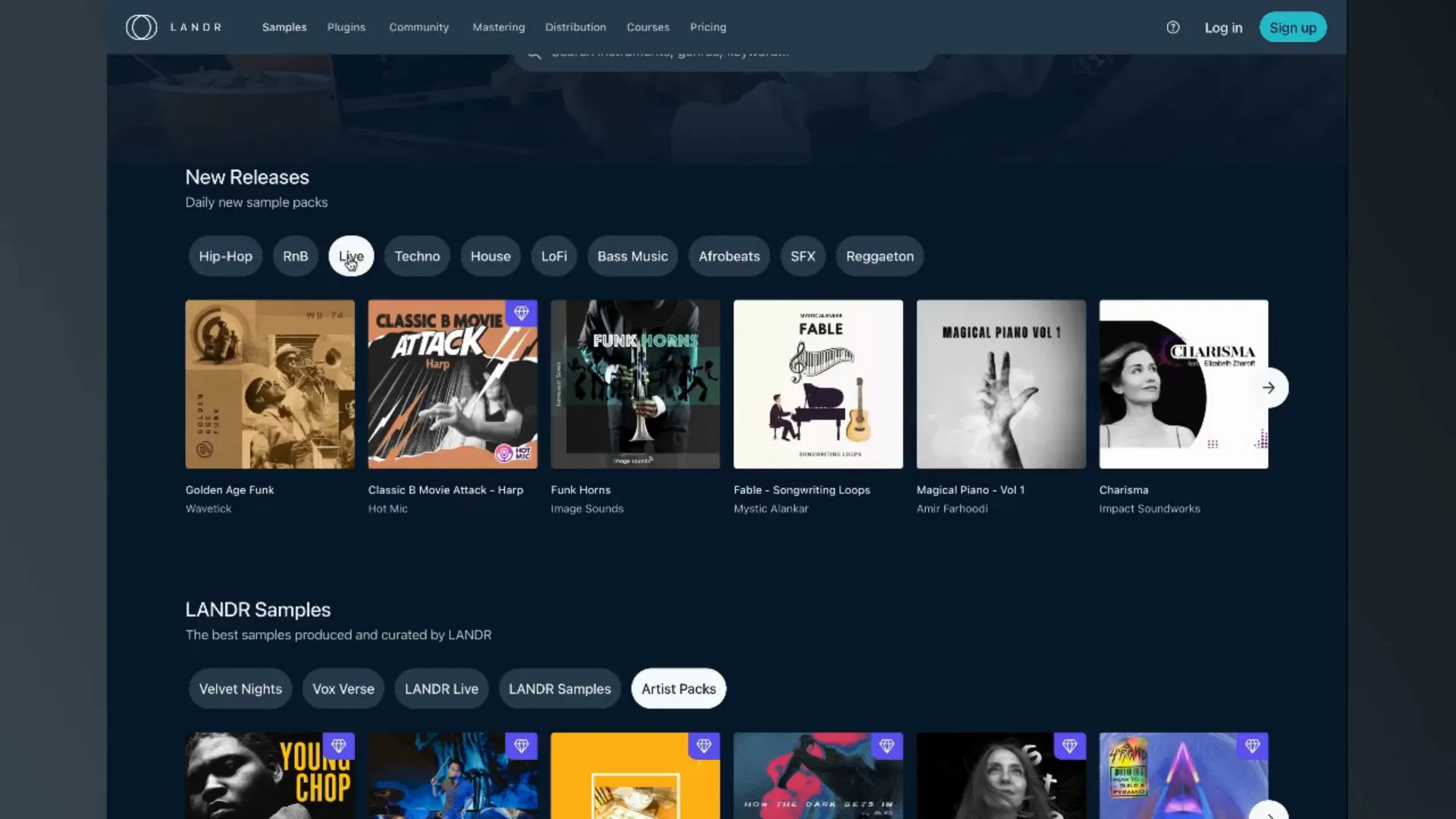
Lander is best known for AI mastering, but their sample library is surprisingly clean and refined. If your beats lean soulful, lo-fi or jazzy rather than full-on trap bangers, Lander Samples has textured drums and loops that fit that vibe perfectly.
Standout points:
- Subscription-based with credits similar to Splice; plans can start around $8/month depending on promotions.
- Integrates well with Lander’s mastering and cloud workflow, which is handy if you use their ecosystem.
- Sounds skew vintage, organic and textured — great for J Dilla, Madlib, or mellow modern rap inspirations.
Lander is an ideal stop if you’re building soulful Rap instrumentals with character and warmth rather than sterile one-shots.
8) ProducerSpot — Marketplace variety of samples for musicians
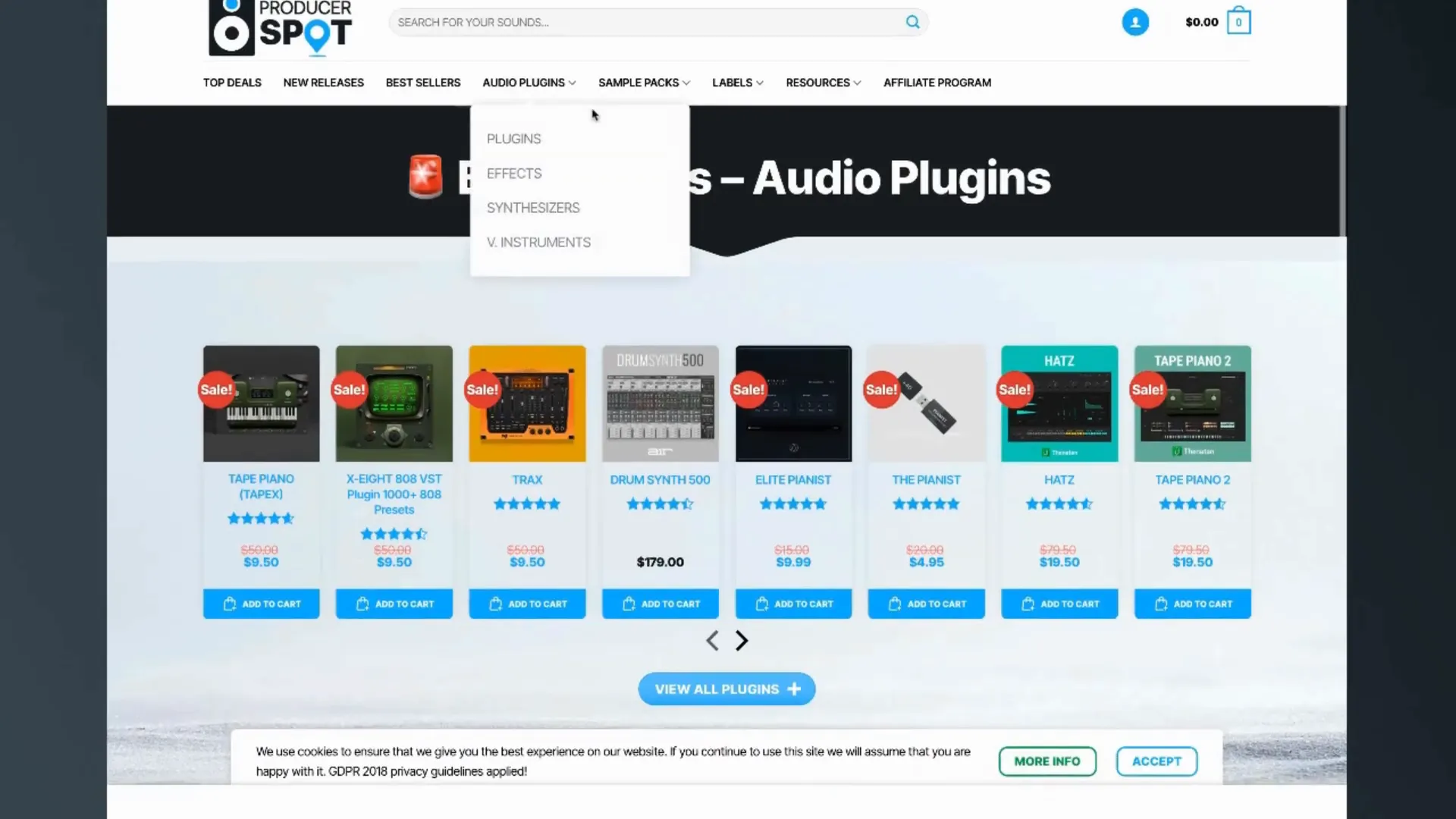
ProducerSpot functions like a curated marketplace. They aggregate packs from developers such as Function Loops, Big Works, DigiNoise and more. Because of this, ProducerSpot offers a wide variety of styles without a subscription model.
Highlights:
- Single-purchase packs typically between $10 and $30.
- MIDI files, WAV loops and one-shots included in many packs.
- Also sells VST presets, drum machines and plugin banks — useful for expanding sound design tools alongside.
If you want to shop different designers from one storefront and avoid subscriptions, ProducerSpot is a convenient hub for versatile kits and resources.
9) TryBuyBeats.com — Beat-maker kits by active producers
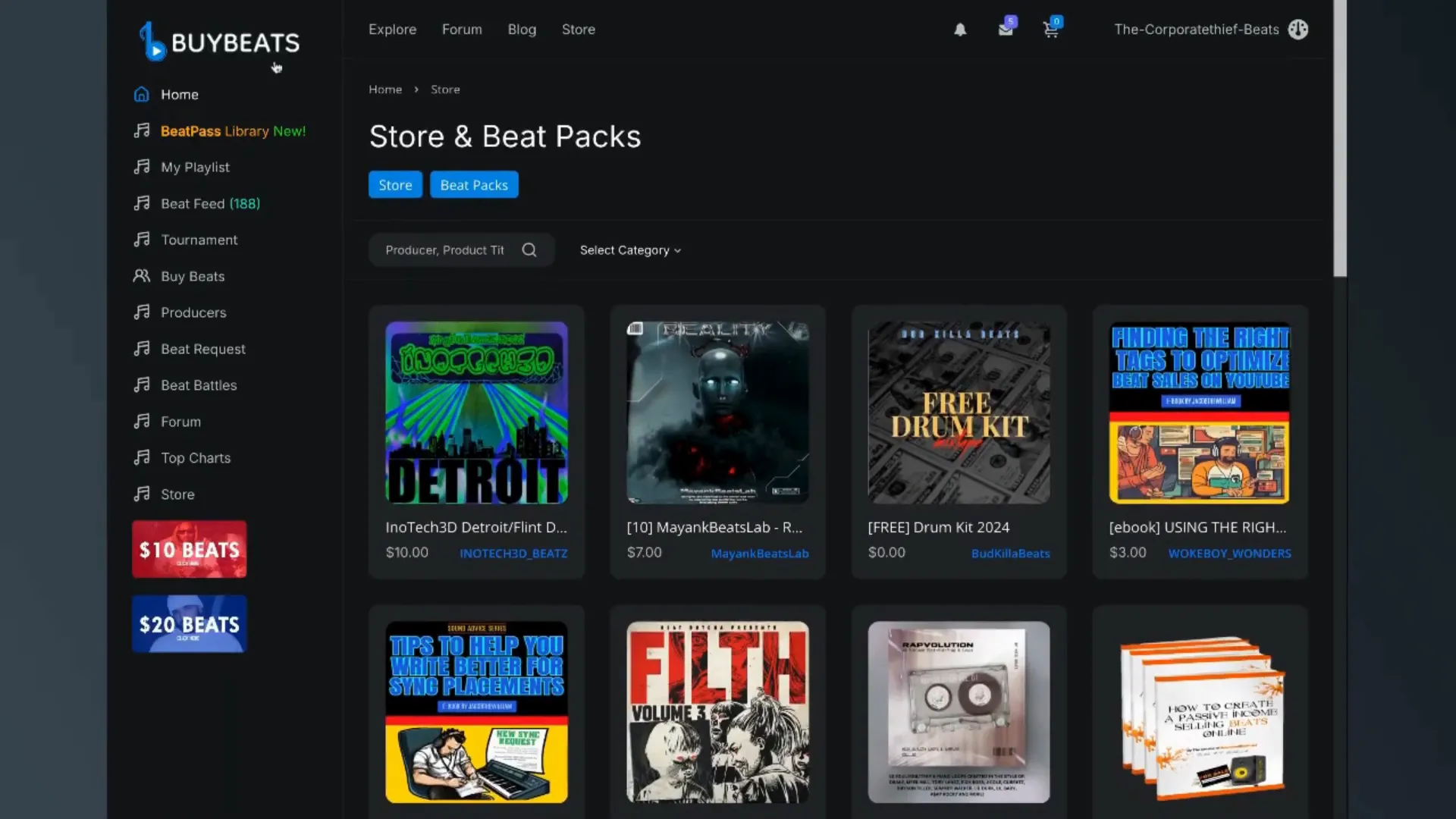
TryBuyBeats.com is primarily a beat marketplace, but many beatmakers sell drum kits and loops there. That means samples are often tuned for artist-ready beats, because they’re made by people who are selling finished instrumentals.
What to expect:
- Practical, artist-ready drum packs — not always vast, but very usable.
- Price range around $10–$25 per kit.
- Great for producers who want straightforward kits from active beatmakers rather than generic sound designers.
Think of BuyBeats as a convenience store for quick, usable Sample Drum Kits that cut straight to the chase.
10) Tracklib — Legal sampling and original drum breaks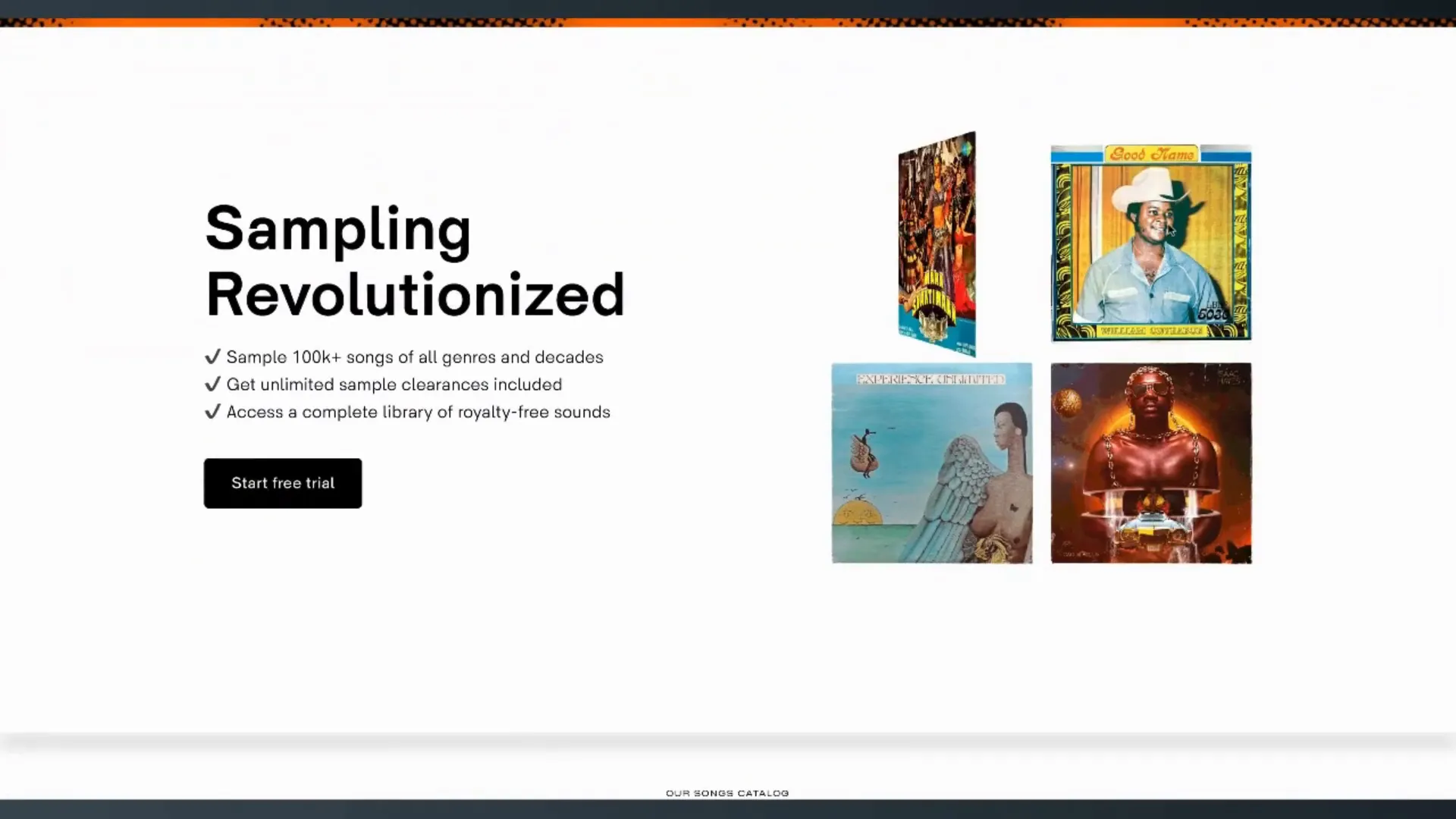
Tracklib is not a drum kit site in the traditional sense. It’s a platform that lets you legally sample actual recorded music — soul, jazz, funk, rare records — with clearance built into the service. If you love flipping records to make 808-driven or boom bap-style tracks, Tracklib gives you legal access to raw material you can chop into your own kits.
Why Tracklib is powerful:
- Authentic drum breaks and textures from original recordings.
- Clearance options that remove legal headaches when releasing music commercially.
- Subscription tiers starting around $14.99/month with different access levels.
Tracklib is perfect if you want to construct unique sounds from actual records instead of relying on synthetic one-shots.
Bonus: My own kit — Greed Is Good Drum Pack
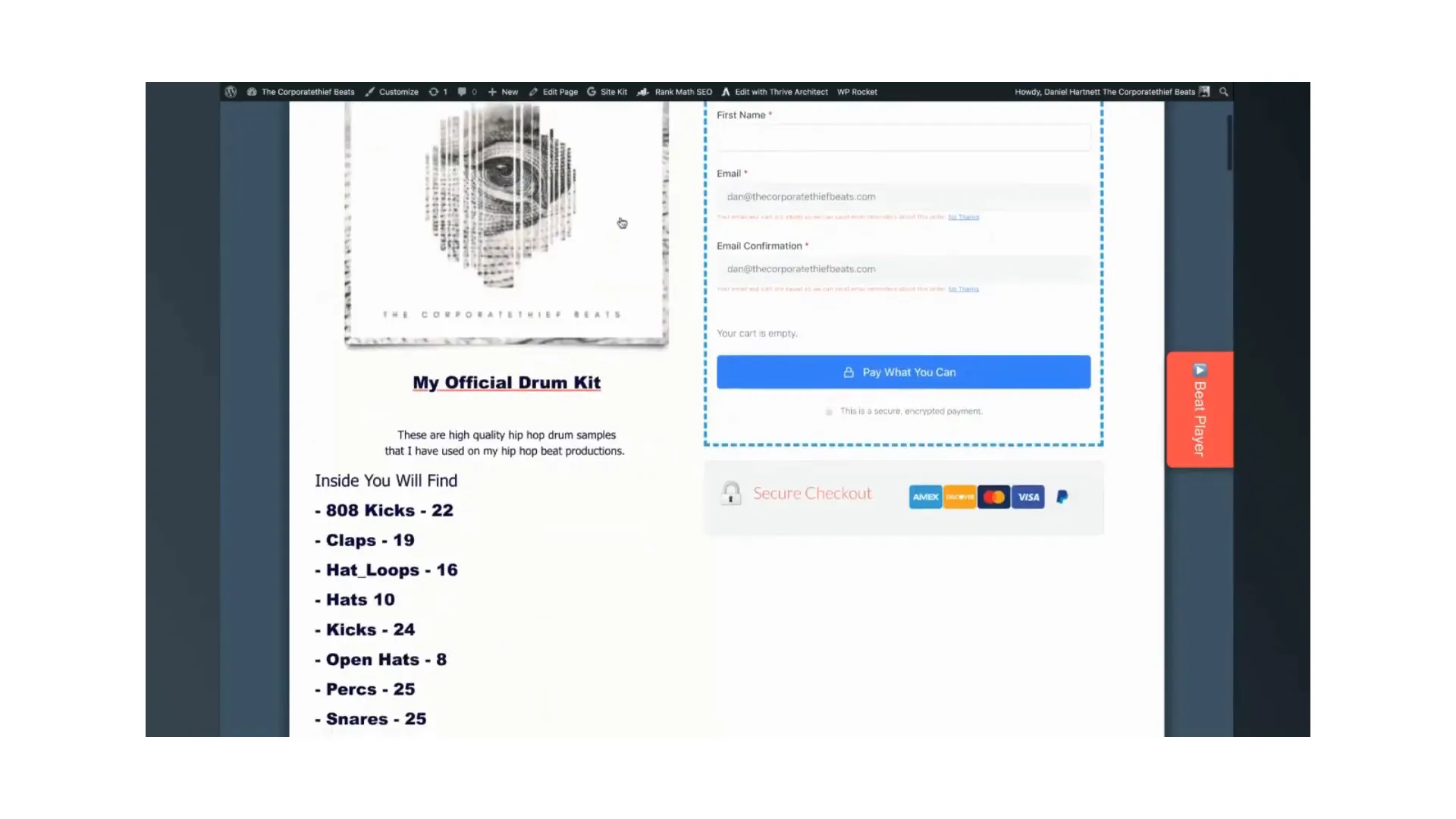
I built the Greed Is Good drum pack specifically for producers who want no-nonsense, ready-to-use drums that work in trap, drill and hard rap contexts. Everything in the kit has been used in placements and tested in mixes for translation across systems.
What you get:
- Punchy kicks, tight snares and gritty hi-hats.
- Clean percussion and heavy 808s designed to cut through dense arrangements.
- Royalty-free files that you can use in commercial releases without extra clearance.
If you want a dependable kit that I use in my own productions, check out the Greed Is Good drum sample pack. It’s optimized for fast workflow and modern hip hop mixes.
Quick shout-outs: Marketplaces worth checking
Two beat marketplaces that deserve extra love are Airbit and BeatStars. Both platforms primarily serve artists looking to lease beats, but they’re also home to many producers who sell sample packs and drum kits. Because sellers are active creators, the sounds tend to be niche, experimental, and practical for artists.
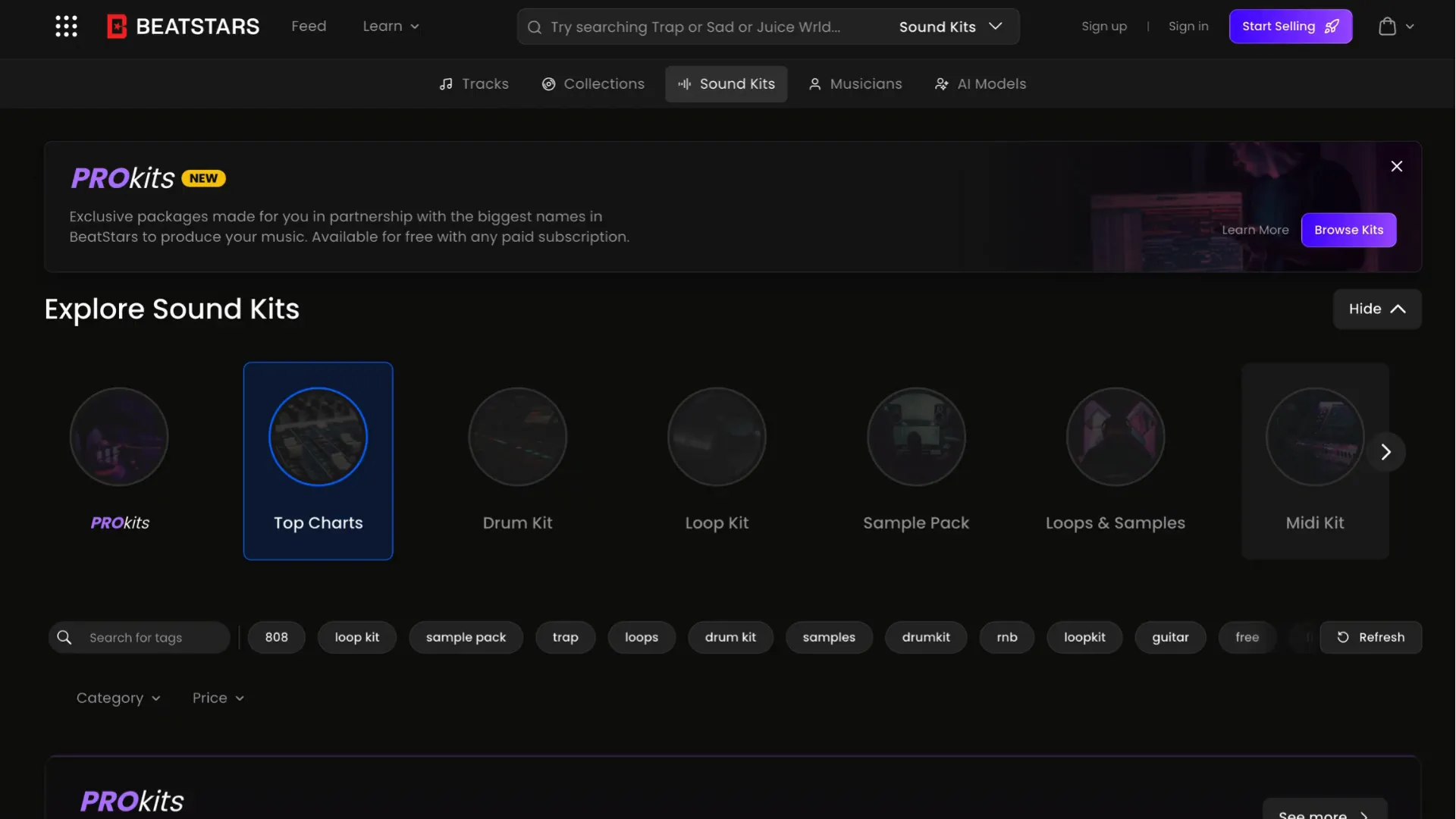
These sites are good for finding unique or boutique Rap Drum Kits 2025 that aren’t on the big marketplaces.
How to choose the right Rap Drum Kits 2025 for your workflow
There’s no one-size-fits-all kit. Choosing the right drum kit depends on your genre, workflow, budget and goals. Use the guidance below to narrow your choices quickly.
1) Decide on ownership vs. subscription
Subscription services like Splice or Lander give you ongoing access to huge libraries for a monthly fee. This is great if you sample constantly and need variety. However, if you prefer owning packs outright (and owning them forever), sites like Unison, Cymatics, Modern Producers and ProducerSpot provide lifetime ownership for single purchases.
If you want to build a consistent signature sound, owning curated packs makes it easier to maintain sonic continuity across projects. If you make hundreds of beats a year and like trying new textures, subscriptions can be more economical.
Keyphrase reminder: whether you subscribe or buy, think about how the kit will fit your long-term approach to collecting.
2) Match the kit to the genre
Some sites skew modern trap (Cymatics, Modern Producers), others skew soulful or lo-fi (Lander, Looperman), and others are all-genre (Splice, ProducerLoops). If you make trap bangers, prioritize sites with punchy 808s and tight snares. If you make boom bap or sample-based rap, choose Tracklib, Looperman or vintage-style packs from Lander.
3) Look for extras: MIDI, templates, and project files
Packs that include MIDI, DAW templates and project files are massively helpful. They speed learning, provide arrangement ideas, and give you ready-made progressions to adapt. Platforms like Unison and Modern Producers often deliver these extras, making them higher value even at a higher price.
4) Evaluate sound quality before you buy
Preview audio and check whether the sounds are dry or processed. Dry one-shots give you more control in your mix, while processed samples may save time but limit flexibility. Splice lets you audition in context via the Bridge plugin, which is useful when building kits for precise mixing needs.
5) Consider legal and clearance issues
If you plan on releasing music commercially, make sure the pack’s license permits commercial use. Tracklib is designed for legal sample clearance; other sample sites usually offer royalty-free licenses, but always read the fine print.
When building your personal library of hip hop sample kits, keep a folder with license documents and receipts so you can prove rights if needed.
Practical tips for building your own drum kit from downloads
Buying sounds is only half the work. The real skill is curating and processing so your drums become unique. Below is a step-by-step workflow I use when assembling kits from any of the sites above.
Step 1: Pick the skeleton — Kick, snare, hat, 808
Start with the kick, snare and 808. These are the core elements that determine how the rest of the beat sits. Choose 1–3 options for each category and export them to a “Kit” folder so you can audition combinations quickly.
Step 2: Layer for character
Layer a sub-kick under a punchier beater kick to get both thump and click. Use a transient designer or short EQ boosts to make layers sit. For snares, layering a short, bright clap with a lower mid-body snare adds presence without muddying the mix.
Step 3: Tune everything
Tune kicks and 808s to your key — use a tuner or frequency analysis. Properly tuned low end is one of the easiest ways to sound more professional. This is especially important with modern Rap Drum Kits that rely on sub frequencies to carry the energy.
Step 4: Edit hits for groove
Quantize lightly, use swing on hi-hats, and move transient positions just a few milliseconds to humanize the pattern. Many drum kits come with MIDI hat rolls — tweak the velocity and timing so they sit with the groove rather than feel mechanical.
Step 5: Process groups
Create drum groups in your DAW (Kick Bus, Snare Bus, Hat/Perk Bus). Add gentle compression, glueing, and parallel processing. Use saturation or tape emulation sparingly to add warmth to sampled drums. Step 6: Create one-shots and multisamples
Export processed one-shots to a multisample instrument or sampler to trigger tuned hits across keys. This helps when you want melodic variations from the same kit while maintaining tonal consistency.
Mixing tips that help purchased drum kits translate
Even the best kits require mix adjustments. These quick mixing checkpoints improve translation on different systems.
- High-pass non-bass elements: remove unnecessary low end from snares, hi-hats and percussions to clear the sub region.
- Sidechain 808s to kick: a short duck can help the kick punch through without killing the bass vibe.
- Use narrow boosts for presence: slice EQ boosts between 2k–6k for snares and claps to cut through mixes.
- Parallel compression for punch: blend a heavily compressed drum bus under the dry drums for energy without squashing dynamics.
- Reference tracks: compare your drums to commercial tracks while checking levels and tonality.
Following these rules will make any pack from Splice, Cymatics, Modern Producers, or Unison sound closer to commercial releases.
Workflow hacks to speed up beat-making with sample sites
Your sample acquisition process can be streamlined so you spend less time collecting and more time creating.
- Create a “Core Kits” folder: save a handful of go-to kits from Unison, Cymatics and Greed Is Good that you always come back to.
- Tag sounds by function: use a naming convention like Kick_Punch_01.wav or Hat_Triplet_02.wav so you can search locally.
- Use samplers and drum racks: drop your favorite one-shots into a drum rack and build a template with ready-to-go groups and effects.
- Keep a template track with routing and processing: this lets you start a beat with mixing decisions already in place.
Common misconceptions about drum kits and sample packs
Let’s clear up a few myths producers often believe:
- Myth: Premium packs automatically make you sound good. Reality: Premium sounds help, but arrangement, processing and mix decisions matter far more.
- Myth: Free=bad. Reality: Free sources like Looperman have unique assets that can give you a signature sound if used creatively.
- Myth: One-shot kits are outdated. Reality: They’re still essential — they let you sculpt your drums from scratch and layer precisely.
Remember, the best kit is the one you can consistently turn into finished tracks that translate and get placements.
FAQ — Rap Drum Kits 2025
Q: Which site is best for trap 808-heavy beats?
A: For trap and hard rap, Unison, Splice and Cymatics are excellent. Unison gives you curated punchy kits and tools, Splice lets you cherry-pick the perfect 808, and Cymatics has trend-ready 808s and bundles.
Q: Where can I find free yet usable kits for beginners?
A: Looperman and Cymatics’ free drops are perfect for beginners. Also, Splice sometimes offers free credits and sample packs if you sign up for trials.
Q: I like sample-based boom bap — which platforms should I use?
A: Tracklib for legal sampling of original records, Lander for textured loops, and Looperman for vintage-sounding community uploads are great for sample-based boom bap.
Q: Are paid packs worth it vs. building kits from lots of single samples?
A: Paid packs often save time and provide cohesive sounds, while selecting single samples (on Splice) gives maximum flexibility. If you value speed and consistency, curated packs are worth the investment.
Q: How do I ensure I can use a pack commercially?
A: Read the license that comes with each pack. Most reputable vendors state “royalty-free” explicitly, but for clarity keep receipts and license files in a project folder. Tracklib has built-in clearance options for actual song samples.
Q: Can I resell a beat that uses samples from Splice or Unison?
A: Yes, if the pack’s license is royalty-free. Make sure to verify the license — some vocal or artist packs may have specific restrictions. When in doubt, check the vendor’s licensing terms or use cleared samples from Tracklib for absolute legal safety.
Q: Which platform gives the best value for producers on a budget?
A: If you want low cost and variety, Splice (with credits) or ProducerSpot (single purchase packs during deals) are strong. Looperman is free — ideal if you have time to dig. Modern Producers often runs deep bundle sales that provide huge value too.
How I personally use Rap Drum Kits 2025 in my productions
My process tends to combine multiple sources:
- I pick a melody or sample first (often from Tracklib or a Unison MIDI pack).
- I audition a handful of 808s and kicks (Splice for variety, Unison for curated options).
- I layer and tune, then group-process the drums with saturation and glue compression.
- I save the final drum group as a reusable kit in my sampler so I can recall it in future projects.
This hybrid approach keeps my sound fresh while maintaining consistency. The key is collecting a small set of trusted sounds from my favorite sources — Unison for polished kits, Splice for single hits, and my own Greed Is Good kit for reliable go-to elements.
Licensing and legal tips when using rap drum samples kits.
Licensing is simple for most modern sample packs: buy a royalty-free pack and you can use the sounds commercially. But stay vigilant:
- Always download and save the license text when you buy a pack.
- For vocals or artist stems, double-check if vocal samples require additional clearance.
- When flipping songs or using loops from old records, use Tracklib or secure clearance directly with the rights holders.
Keeping records and licenses organized in a “Licenses” folder per project will save you headaches if a legal question arises.
Putting it all together — a recommended setup for different producers
Not all producers need the same tools. Here are three curated setups based on budget and goals for sourcing sounds.
Beginner / Budget Producer
- Use Looperman for free loops and Cymatics free packs for polished one-shots.
- Build a small personal kit and learn layering and tuning.
- Refer to free tutorials included with many packs to learn mixing basics.
Intermediate / Beat Seller
- Subscribe to Splice for single-shot flexibility and occasional paid packs for signature sounds.
- Buy 2–4 curated packs from Unison or Modern Producers for a consistent library.
- Save templates and recallable kits to speed production for clients.
Professional / Placement-focused Producer
- Invest in multiple Unison packs, Modern Producers construction kits, and Tracklib for sample clearance.
- Use ProducerLoops to get multitrack stems and arrangement ideas when pitching to labels or artists.
- Maintain a high-quality template with proper group processing to deliver artist-ready stems.
Final thoughts
In 2025, the market for drum kits is bigger and more specialized than ever. Whether you prefer curated premium packs, subscription access to millions of samples, or free community uploads, there’s a solution that fits your workflow. Here’s the bottom line I stick to when choosing sources.
- For speed and professional polish: Unison and Cymatics.
- For endless variety and pick-and-choose flexibility: Splice.
- For unique, vintage, and sample-based sounds: Tracklib and Looperman.
- For construction kits and stems: ProducerLoops and Modern Producers.
Use the tips in this article to build a curated core library, develop a consistent workflow, and process drums so they sound professional on any system. If you want a practical no-nonsense kit I use myself, consider trying the Greed Is Good drum pack — it was built with modern rap and trap mixes in mind.
FAQ (Extended)
Q: How often should I update my drum library?
A: Update when you feel your sound is getting stale or when a new pack directly inspires you. Quality over quantity — it’s better to deeply know and craft a smaller library of go-to Rap Drum Kits 2025 than to hoard thousands of unused samples.
Q: Can I resell a sample pack I buy?
A: No. Buying a sample pack gives you the right to use the sounds in your productions, usually royalty-free, but you cannot resell the raw samples themselves. Check each pack’s license for specifics.
Q: What’s the difference between one-shots and loops?
A: One-shots are single hits (kicks, snares, hats) used to create patterns. Loops are pre-made sequences. One-shots provide more flexibility for custom patterns, while loops are great for quick inspiration and specific vibes.
Q: Should I focus on trend sounds or timeless sounds?
A: Balance both. Trend sounds help your beats feel current, but timeless sounds ensure longevity. Use trend-heavy elements sparingly atop a strong foundational kit.
Closing: Next steps and resources
Start by picking one or two platforms from this list and build a small core kit. Try combining one curated pack (Unison or Cymatics) with one subscription source (Splice) and a free resource (Looperman). Use the workflow steps above to tune, layer, and process. Keep your library organised and save your favorite kits as presets.
If you enjoyed this guide and want a reliable, tested set of drum sounds, check out the Greed Is Good drum pack — it’s built for modern rap and trap, tuned for mixes and ready to use.
